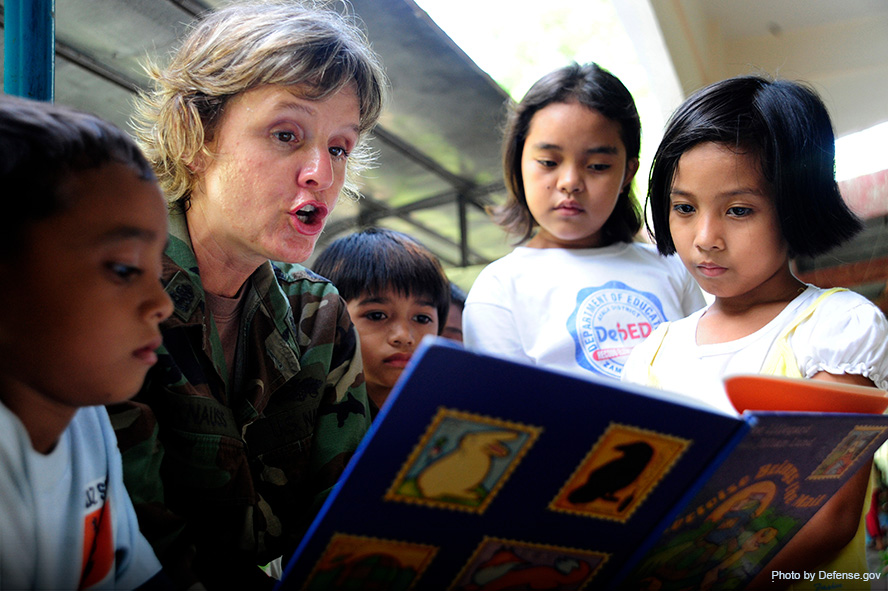
It is tempting to compare Marawi city in the southern Philippines with Aleppo in Syria. There are indeed many graphic similarities - the Islamic State in Iraq and Syria (ISIS) flag, black-dressed fighters, buildings in rubble, fleeing refugees.
Beyond these, Marawi is not Aleppo. Aleppo is a proxy war among geopolitical rivals in the Middle East - Saudi Arabia, Iran, Turkey, the United States and its allies, and Russia. This has made the war protracted and deadly, involving heavy weapons and mass casualties. This protracted war in turn has fuelled the recruitment of foreign fighters in the hands of ISIS, thereby further escalating the conflict. In contrast, Marawi is not the result of geopolitical rivalry. This makes a huge difference in terms of the conflict's scale, financing and dynamics.
Second, Philippine President Rodrigo Duterte is not Syrian President Bashar al-Assad. The Assad regime of Syria has been brutal towards his opponents such that a political solution is nowhere in sight. The Duterte regime in contrast seeks a political solution to the problem of Muslim Mindanao. The two main armed Muslim groups - the Moro Islamic Liberation Front (MILF) and Moro National Liberation Front (MNLF) - are in fact friendly to Mr Duterte and are negotiating a more permanent, political solution to the conflict. This point is important because it deprives ISIS of the propaganda that this is a Christian-Muslim war, which it certainly is not.
While Marawi is not Aleppo, it is important for defence officials of Indonesia, Malaysia and the Philippines to take stock of the lessons from Marawi when they meet this week.
The first lesson is border control. There is a real possibility that a swarm of ISIS sympathisers from nearby Indonesia, Malaysia and elsewhere could be drawn into the Marawi conflict. Joint naval patrols are welcome but these are limited, given the vast and porous borders. Aerial and satellite monitoring should be considered with the help of the US. Seaport border controls would have to be tightened. Coastal communities in high-risk areas should be mobilised as militias and border control agents.
The second lesson is that Marawi is a failure of intelligence, especially failure to monitor the entry of foreign operatives of ISIS. To prevent another Marawi, cities and towns in the region at high risk of becoming breeding grounds for ISIS should be identified. Infected communities should be locked out early. Community-based intelligence should be set up and made permanent. The Philippines should learn from the relatively successful experience of Indonesia's anti-terrorism group Detachment 88. Intelligence cooperation is also where Asean and the US should work more closely together.
The third lesson is that this is as much a propaganda war on social media as it is a physical war. ISIS is highly capable of waging a global propaganda war. Asean should collectively persuade social media firms in the region to police their sites against ISIS propaganda material. Singapore is the regional hub of these firms. It is in its interest to persuade them to cooperate.
The fourth lesson is about reorienting the armed forces in the region. Fighting ISIS requires capabilities for urban guerilla warfare, which is lacking in the region. Regional armed forces will now have to develop this capability. Force multipliers such as urban militias will have to be established.
The fifth lesson is about the financial lifeblood of ISIS in the region. The large amount of money found near one of the nests of the Maute group suggests the importance of cash transactions. One way to disable this is to consider the option of demonetising the currency quickly so that old notes will no longer be legal tender. Greater supervision of local banks is necessary to stop illicit transfers. The Philippines should ask China to double its efforts to help stop the flow of ingredients for the manufacture of methamphetamine drugs, as this could very well be a source of funding for ISIS.
Finally, the spread of the ISIS virus will not stop after the conflict in Marawi. A long-term plan to fight the spread of this ideology in the region has to be implemented. Indonesia - the world's most populous Muslim country - is particularly vulnerable. In a 2015 survey by Pew Research Centre, 1 per cent of Indonesians (about 2.5 million people) had a strongly favourable view of ISIS. The Indonesian authorities report that there are sleeper cells throughout the country. If the Marawi conflict drags on, it could serve as a hornet's nest for ISIS, especially now that it is losing ground in Syria and Iraq.
The problem of widespread poverty and youth unemployment in many parts of Muslim Mindanao and Indonesia needs to be addressed decisively. Poverty and youth unemployment are fertile breeding grounds for radicalisation. Educating the next generation of Muslim youth, especially women, will go a long way towards slowing the tide of ISIS ideology in the region. Foreign aid to Mindanao and Indonesia has to be much better targeted in high-risk areas. Malaysia, Brunei and Indonesia should continue to offer help to the Philippines to conclude its peace talks with MILF and MNLF as soon as possible, so that they can police their territories better. Mr Duterte has admitted that the government's soft policy on MILF and MNLF has been taken advantage of by ISIS supporters in Marawi to stockpile weapons and ammunition.
Marawi is not Aleppo, but it could very well become one if these lessons are ignored.
This piece was published in The Straits Times on 20 June 2017.